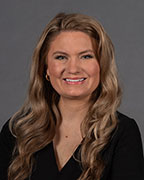Jim Astrachan was tapped for his take on the Protecting American Intellectual Property Act in a news article on Technical.ly.
Here’s an excerpt:
Intellectual property lawyer James Astrachan of downtown Baltimore’s Goodell, DeVries, Leech & Dann sees a mix of positives and major concerns with the new bill. He specifically cited the bill’s seemingly incomplete definition of what it purports to protect.
“I’m looking at the bill, and I don’t see that the bill even defines the term ‘trade secrets,’” said Astrachan, who is also an adjunct professor at the University of Baltimore School of Law. “That throws up in the air a lot of discretion to whoever is compiling this list of offenders for the president.”
Astrachan also believes companies are likely to report theft unless the act of doing so results in losing control of that trade secret. To that end, he is actually getting ready to file a trade secret action for a client.
“We’ll be very vague in our complaint in terms of identifying [the trade secret],” he explained. “We’ll try to work out some sort of protection so that it’s going to be under seal. Nobody can read it in the court records.”
He also noted how the terms “knowingly,” “secretly,” and “theft” remained undefined in the act, which could be problematic.
“You wonder whether in operation, this bill has been so watered down that the teeth are, ‘I’ll bite if I want to bite,’ he said.
Read the full article here: A new law aims to protect US IP from international theft. Here’s what that means for founders

